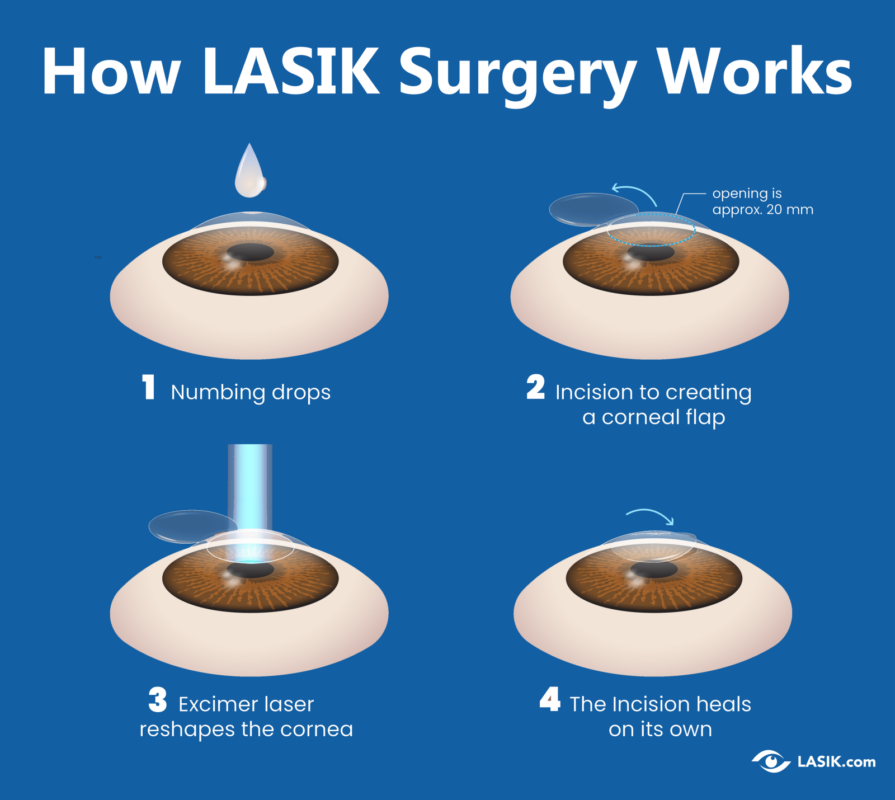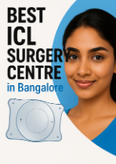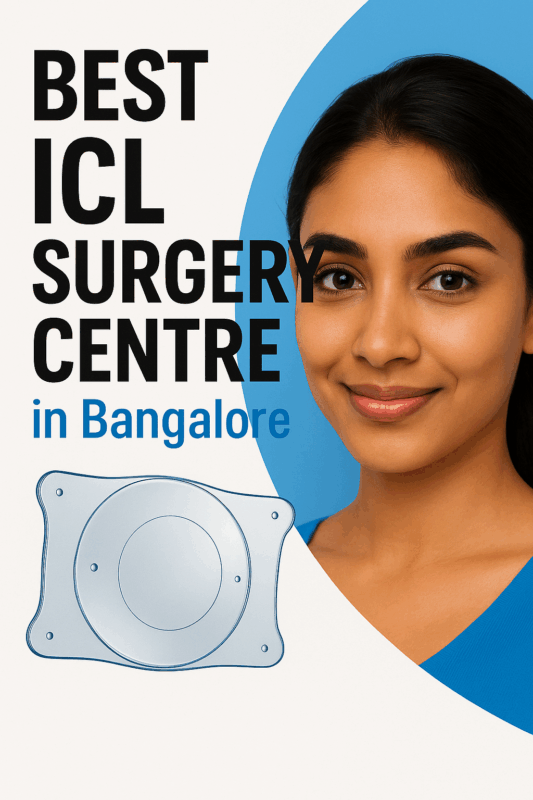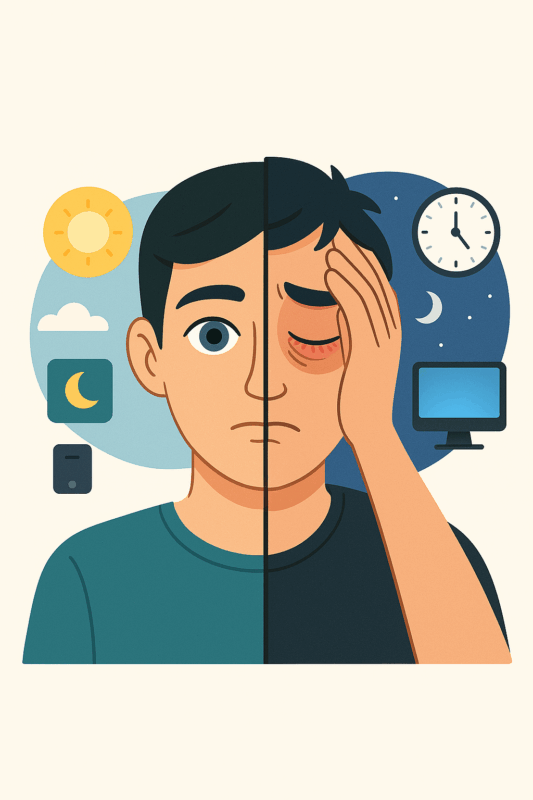With the global population ageing rapidly and the average lifespan increasing, cataract eye surgery is one of the fastest growing procedures among all age groups. Although cataract surgery is one of the most successful surgeries performed, it is important to follow after cataract surgery care plan to prevent any future complications, infections or further damages to the eye.
Congratulations on completing your cataract surgery! This is an exciting time as you embark on the journey to a better vision. Here are some critical
Cataract surgery post operative instructions to ensure a successful recovery:
- Rest and Limit Activity: It is essential to rest and limit activity for the first few days after cataract surgery. Avoid any strenuous activity, such as lifting heavy objects or bending over. Sleeping can help your eyes heal more quickly.
- Avoid Touching or Rubbing Your Eye: After cataract surgery, your eyes will be sensitive and vulnerable to infection. Avoid touching or rubbing your eyes, and wear the protective Goggles provided by Vijaya Nethralaya at all times, especially at night.
- Use Eye Drops and Medications as Prescribed: we will prescribe eye drops to help prevent infection and inflammation(swelling). Follow the instructions carefully and use the drops and medications as directed. Keeping up with the recommended schedule is essential to ensure a smooth recovery. Do read the section below on applying the drops.
- Avoid Getting Water in Your Eye: It is essential to avoid getting water in your eyes for at least one week after cataract surgery. This includes taking showers and washing your face. Use Sterile wipes provided post cataract surgery to clean around your eye first and then wipe your face. You may have a body bath and brush your teeth but ensure no drops of water enter your eyes. Also, avoid sweat from entering your eyes.
- Use Protective Sunglasses: It is essential to protect your eyes from bright light and UV rays during the first few days after cataract surgery. Wear protective sunglasses wherever you go outside, even on cloudy days. Exposure to bright light may induce mild pain, especially during the first month following surgery.
- Attend Follow-Up Appointments: Your surgeon will schedule follow-up appointments to monitor your progress and ensure your eyes heal correctly. Attend all scheduled appointments and report any concerns or changes in vision to your surgeon. The Normal appointment schedule is as follows:
1st visit – within 48 hours of Surgery.
2nd visit – 10th day after surgery to check Pressure, healing and other side effects
3rd Visit – One month following Surgery (Spectacles may be prescribed) and this is the ideal time to get medications reviewed.
4th visit – 3 months following surgery – during this period, almost a month would have elapsed without medication. The eyes should be assessed for best function, inflammation (Swelling) and Side effects. After this visit, you can visit the Doctor only if asked or if the situation warrants.
- Wait to Drive: You should not drive until your surgeon clears you. It may take a few days to a week before you can drive again.The type of Lens Chosen for surgery may also affect driving.
- Near work:- This depends on the type of Lens implanted. If you have undergone Multifocal and Trifocal Iol’s then you may not have any Issues reading or using mobile phones. We would recommend reading or using mobile phones in moderation. If you have chosen to undergo surgery with monofocal Iol then you shouldn’t try hard to read especially in the days following Cataract Surgery. You will be prescribed reading spectacles one month after the surgery
- Foods:
After cataract surgery, it is essential to follow a healthy diet to promote healing and reduce the risk of complications. Here are some foods to include in your diet after cataract surgery:
- Fruits and Vegetables: Fruits and vegetables are rich in vitamins and antioxidants that promote healing and reduce the risk of infection. Include a variety of colourful fruits and vegetables in your diet, such as spinach, kale, berries, and citrus fruits. People with Diabetes should have fruits in Moderation.
- Lean Proteins: Lean proteins such as chicken, fish, and beans are important for building and repairing tissues after cataract surgery. Include these foods in your diet to promote healing and reduce inflammation.
- Whole Grains: Whole grains such as brown rice, quinoa, and whole-wheat bread are fibre-rich and essential nutrients that promote healing and reduce inflammation.
- Low-fat Dairy Products: Low-fat dairy products such as milk, yoghurt, and cheese are rich in calcium and vitamin D, essential for bone health and healing after cataract surgery.
- Nuts and Seeds: Nuts and seeds are rich in healthy fats, protein, and essential vitamins and minerals that promote healing and reduce inflammation. Include almonds, walnuts, chia seeds, and flaxseeds in your diet.
- Water: Staying hydrated is essential for promoting healing and reducing the risk of complications after surgery. Drink plenty of water throughout the day to stay hydrated.
In general, eating a balanced diet that includes a variety of nutrient-rich foods is essential to promote healing and reduce the risk of complications after cataract surgery.
Here are some foods to avoid after cataract surgery:
- Salty or Spicy Foods: Salty or spicy foods can cause inflammation and increase the risk of swelling around the eyes. Avoiding such foods for at least a week after cataract surgery is best.
- Fatty Foods: Fatty foods can increase the risk of complications such as high blood pressure, which can cause bleeding in the eye. Avoid fried foods, processed meats, and high-fat dairy products.
- Alcohol: Drinking alcohol can increase bleeding risk and slow the healing process. It is best to avoid alcohol for at least a week of post cataract surgery.
- Coffee and Tea: Caffeine can increase blood pressure and cause dehydration, affecting healing. Limiting coffee and tea intake for the first few days after cataract surgery is best.
- Carbonated Drinks: Carbonated drinks can increase the risk of bloating and dehydration, which can cause complications of cataract surgery. It is best to avoid carbonated drinks for at least a week after surgery.
- Processed Foods: Processed foods contain high levels of sodium, which can cause inflammation and swelling. It is best to avoid processed foods such as chips, canned goods, and fast food.
Generally, eating a healthy, balanced diet that includes plenty of fresh fruits and vegetables, lean proteins, and whole grains is important. Drinking plenty of water and staying hydrated are also essential for a smooth recovery after cataract surgery.
Follow our instructions for after cataract surgery care and any dietary restrictions to ensure a smooth recovery:
Overall, following your instructions carefully and taking good care of your eyes during recovery is essential. With patience and attention to detail, you can enjoy the benefits of improved vision and successful recovery.
1. Recovery
You will be able to go home on the same day as your cataract surgery as its a simple day care surgery
You should have protective black glasses over your eyes when you leave the hospital, which should be worn for a month after cataract surgery.
Vision and recovery from numbness should start to return to your eye within a few hours of surgery, but it may take a little more time in some rare cases for your vision to fully return.
It’s normal to have:
- Gritty feeling
- Watering sensation
- blurry vision
- Diplopia (Double Vision)
- Red eyes or blood stained eyes
The side effects normally improve within 48 hours, but it can take a week to recover Completely.
Usually Spectacles are prescribed after one month.
Cataract surgery is very successful in improving your eyesight and very soon you will be able to resume normal activities..
When to seek help
Contact our emergency number as soon as possible if you experience:
- increased pain and/or redness
- decreased vision
2. Dos and don’t s:
For the first month after cataract surgery:
Do’s:
- use your medicines and drops as instructed
- Relax, take it easy and slow for the first 3-4 days
- use your protective glasses at night for at least 2 days
- take additional painkillers if you need to
- bathe below the neck yourself as usual
- Get your hair washed parlour style if you really have to but be extremely careful to avoid water from entering eyes
- watch TV
- use your protective sunglasses outdoors
- Please avoid swimming for a month
Don’t:
- do not rub your eyes
- do not allow soap or shampoo to get into your eye
- do not drive until we tell you it’s alright
- do not do any strenuous exercise
- Do not lift heavy weights
- do not wear any eye make-up for at least a month
- Fly the first 48 Hours after surgery
You should arrange someone to take care of you and apply drops from time to time, especially if your other eye’s vision is poor.
If you work, how soon you can return will largely depend on your nature of work and your requirement of spectacles.
3. Using of your eye medications and drops:
Before you leave the hospital, you’ll be given eye drops to heal your eyes and prevent infection.It’s important to use your eye drops as instructed.
Unless told otherwise, you should:
- Start using prescribed Drops 6-4 times a day
- Use them only on operated eye
- wash hands before using drops
- Maintain a minimum time of 5 minutes between Drops
- do not stop eye drops without advice
- do not let others use your eye drops
- Do not touch the Capped portion of your eye drops
- Shake the dropper before removing the cap
- Close the lids of the dropper correctly and store the drops in a cool place away from sunlight
You’ll be advised further about the use of eye drops at your follow-up appointment, usually in the first 48 hours after your operation.
At this appointment, you may be given advice on when to stop using your eye drops and when to review for spectacle correction.
How to apply eye drops?
- Wash your hands.
- Tilt your head back.
- Look up at the ceiling.
- Gently pull down the lower eyelid with a finger.
- Squeeze the bottle until a drop goes into your eye.
- Do not apply more than a single drop.
- Slowly and gently release the finger pulling the lower lid
- Very gently blink your eye and do not squeeze the lids.
- If fluid overflows then reapply again after 5 mins.
- Do not let the bottle tip touch the eye.
- Safely dispose of the drops once you have finished your course of treatment.
- Drops should be discarded after one month of opening and should be replaced with fresh drops.
How to clean your eye?
- Wash your hands.
- Pat dry in a fresh clean sundried unused towel.
- Use the provided Sterile wipes only to clean your eyes.
- Gently open the sterile wipes pouch and pull out the wipes.
- Gently rub the untouched surface against the lids without applying too much pressure.
- By rubbing remove all the debris, collections and secretions from the lashes and lids.
- Gently wipe from the inside (near your nose) to the outside corner of your eye (towards temples).
- Do not try to clean inside your eyelids.
- Do not wash your eyes out with water.
- Do not press on your eye.
- Use the same sterile wipe to cleanse your face and discard the wipe after single use.
- You can clean once or twice a day. Preferably in the mornings and evenings before bed after applying the drops
During the first week, you will need to clean your eyes twice a day because the drops and the healing process can cause slight stickiness of the eyelids.
Conclusion:
After cataract surgery, taking care of your eyes properly is crucial for a quick and safe recovery. By following the steps outlined in this comprehensive guide to post-operative care, you can reduce the risk of complications and ensure that you are on the road to a full recovery.
In addition, if you are looking for a simple, easy-to-follow guide, the fool’s guide to cataract surgery post operative care plan provides a basic plan that covers the essential steps for proper recovery.
Remember to always follow your surgeon’s instructions and report any unusual symptoms or concerns immediately. With proper care and attention, you can have a successful cataract surgery recovery and enjoy improved vision for years to come.












